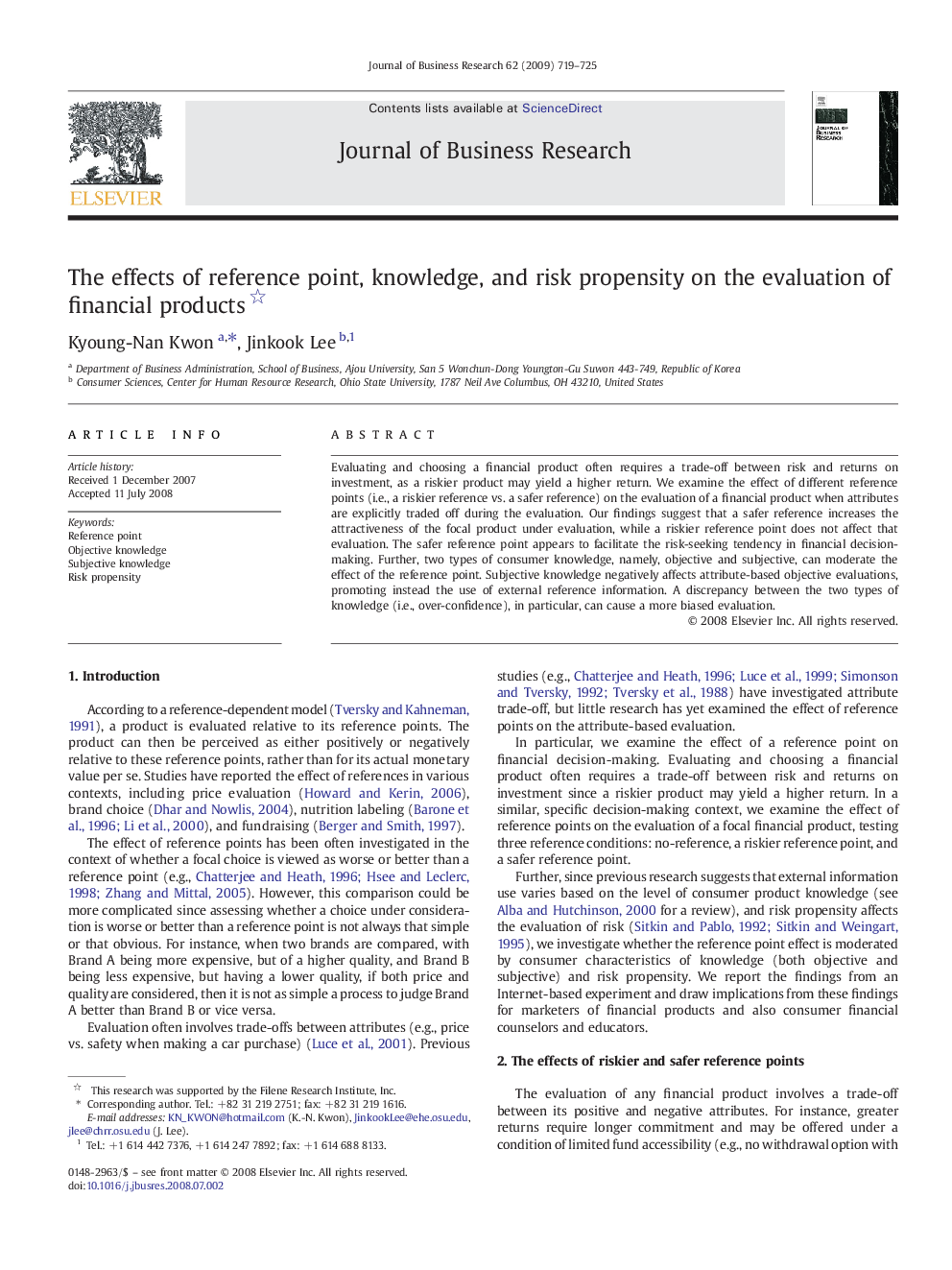| Article ID | Journal | Published Year | Pages | File Type |
|---|---|---|---|---|
| 1019057 | Journal of Business Research | 2009 | 7 Pages |
Evaluating and choosing a financial product often requires a trade-off between risk and returns on investment, as a riskier product may yield a higher return. We examine the effect of different reference points (i.e., a riskier reference vs. a safer reference) on the evaluation of a financial product when attributes are explicitly traded off during the evaluation. Our findings suggest that a safer reference increases the attractiveness of the focal product under evaluation, while a riskier reference point does not affect that evaluation. The safer reference point appears to facilitate the risk-seeking tendency in financial decision-making. Further, two types of consumer knowledge, namely, objective and subjective, can moderate the effect of the reference point. Subjective knowledge negatively affects attribute-based objective evaluations, promoting instead the use of external reference information. A discrepancy between the two types of knowledge (i.e., over-confidence), in particular, can cause a more biased evaluation.
